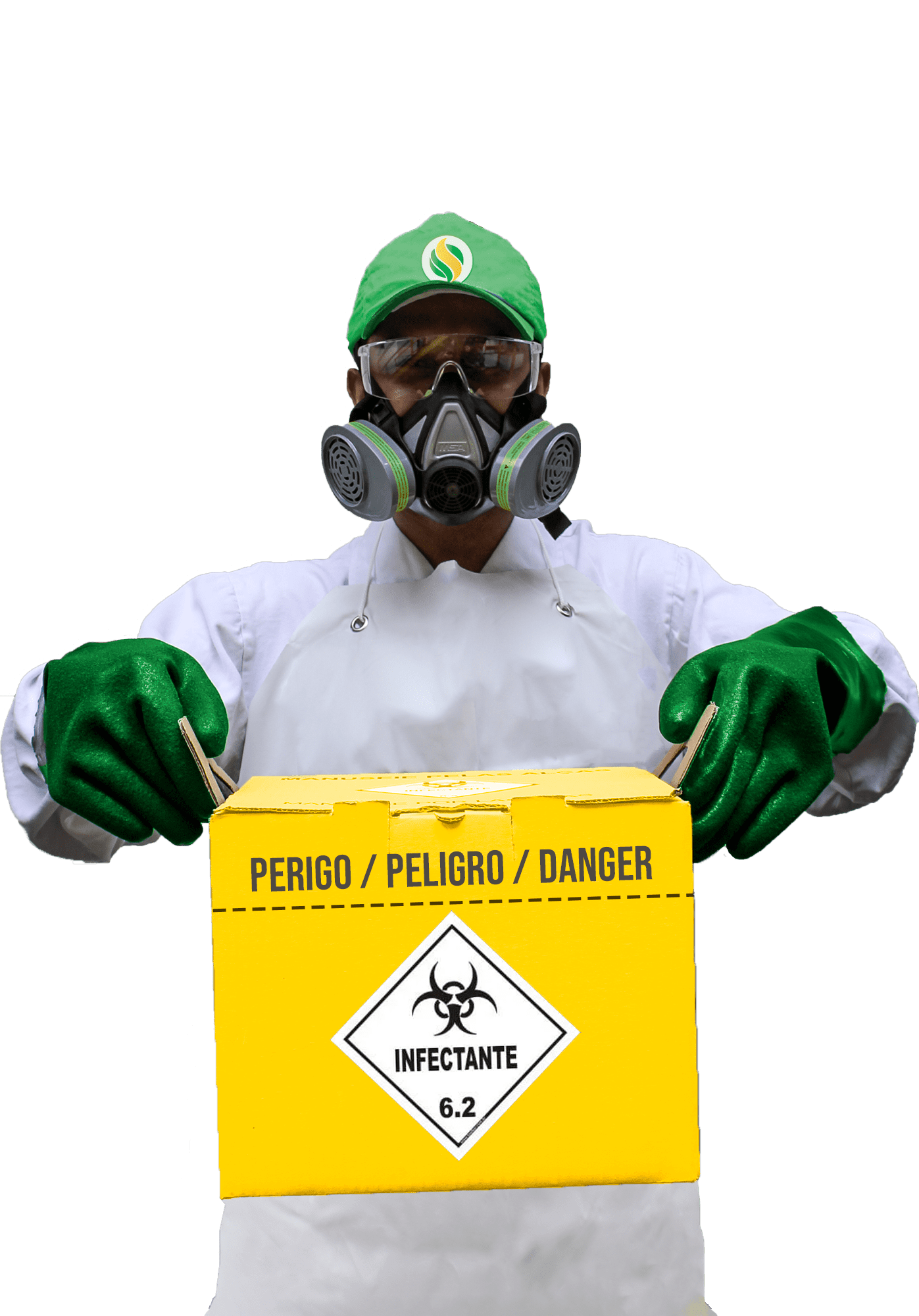Waste management involves a series of environmental laws and regulations aimed at protecting the environment, public health, and ensuring legal compliance for businesses. In this article, we will discuss the 10 most frequently ignored standards in waste management, based on relevant legislations such as the National Solid Waste Policy (PNRS), CONAMA, National Environmental Policy, and RDC 222, among others.
- Proper Waste Classification
Many companies fail to properly classify their waste, posing environmental risks and violating regulations. The National Solid Waste Policy (Law 12.305/2010) requires waste to be segregated into specific classes (A to E), based on their risk to health and the environment.
Applicable Legislation: Law 12.305/2010 (PNRS) and CONAMA Resolution 358/2005 establishes criteria for managing hazardous waste.
How to Avoid: Ensure correct waste classification and segregation as PNRS and CONAMA stipulated.
Learn more about proper waste classification at this link https://utdsuzano.com.br/tipos-de-residuos-e-suas-classificacoes/
- Inadequate Temporary Storage
Improper storage of hazardous waste is a common violation. CONAMA Resolution 358/2005 mandates that hazardous waste be stored in suitable locations, protected against weather conditions and leaks.
Applicable Legislation: CONAMA Resolution 358/2005.
How to Avoid: Use appropriate, labeled containers for the temporary storage of waste, complying with legal requirements.
- Insufficient Employee Training
Lack of training for employees in safe waste handling is a recurring mistake. The National Environmental Policy (Law 6.938/1981) emphasizes the need for continuous training to prevent environmental damage and protect public health.
Applicable Legislation: Law 6.938/1981 (National Environmental Policy).
How to Avoid: Provide regular training based on safety and health regulations, as required by Law 6.938/1981.
- Lack of Identification and Signage
Inadequate labeling of waste storage areas and containers can lead to accidents and compliance issues. ANVISA Resolution RDC 222/2018 requires proper identification of all healthcare waste to ensure safe handling.
Applicable Legislation: RDC 222/2018 (ANVISA).
How to Avoid: Ensure all waste containers and storage areas are properly labeled.
- Waste Control Documentation
Documentation of waste generation, transport, and disposal is often neglected. Decree 7.404/2010, which regulates PNRS, requires the maintenance of records for all stages of waste management.
Applicable Legislation: Decree 7.404/2010 (PNRS).
How to Avoid: Maintain detailed and up-to-date records of all waste and their disposal, as stipulated by PNRS.
- Transporting Waste without a License
Transporting hazardous waste requires contractors to have a valid environmental license. CONAMA Resolution 362/2005 sets standards for transporting hazardous waste, including the use of licensed and marked vehicles.
Applicable Legislation: CONAMA Resolution 362/2005.
How to Avoid: Always hire properly licensed transport companies that comply with safety standards for hazardous waste.
- Inadequate Final Disposal
Sending waste to unlicensed disposal sites can result in serious environmental consequences. CONAMA Resolution 313/2002 establishes criteria for the final disposal of industrial solid waste.
Applicable Legislation: CONAMA Resolution 313/2002.
How to Avoid: Verify the license and capacity of final disposal sites to ensure they meet legal and environmental requirements.
- Failure to Segregate Waste at the Point of Generation
Inadequate segregation of waste at the point of generation can increase costs and contamination risks. RDC 222/2018 emphasizes the importance of on-site segregation, especially for healthcare waste.
Applicable Legislation: RDC 222/2018 (ANVISA).
How to Avoid: Implement internal policies to ensure proper segregation of waste at points of generation.
- Lack of Emergency Plans
The National Environmental Policy requires companies handling hazardous waste to have an emergency plan for dealing with leaks, fires, or other environmental incidents. However, many organizations overlook this requirement.
Applicable Legislation: Law 6.938/1981 (National Environmental Policy).
How to Avoid: Develop and implement an emergency plan, and train your employees to respond to accidents.
- Lack of Regular Audits
Regular environmental audits are essential for verifying compliance with legal standards. PNRS and CONAMA recommend conducting audits to ensure compliance and prevent irregularities.
Applicable Legislation: Law 12.305/2010 (PNRS) and CONAMA Resolution 313/2002.
How to Avoid: Conduct regular environmental audits to ensure all waste management processes comply with legal standards.
Conclusion: The Importance of Compliance in Waste Management
Ignoring standards can expose your company to environmental and financial risks, and compromise the safety of workers and the community. Compliance with legislation is essential to ensure the sustainability of operations and avoid fines and penalties.
At UTD Suzano, we ensure that all waste management processes comply with current legislation, ensuring proper and safe treatment of your company’s waste.











